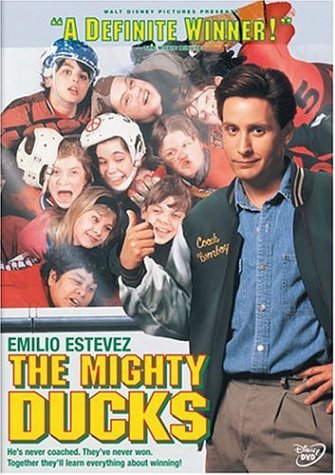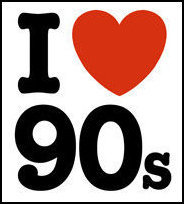
Every generation of children has their own group of superheroes to admire and adore. Admittedly, ours was somewhat of an eclectic bunch. If our 90s TV superheroes were forced to square off against, say, some 1970s TV superheroes, we'd probably be pretty screwed.
It's not so much that they were unskilled heroes or their powers were not useful. Okay, that may have been true in some cases (Ghostwriter, anyone?), but certainly not all across the board. Generally, though, 90s TV superheroes seemed a bit more down to earth than the heroes of days of yore. Many past superheroes had been virtually untouchable, so on top of their game that we could do no more than stand by in awe, mouths agape in bewonderment. As time went on, however, there developed a prototype for superheroes to whom we could more readily relate. By the time our superheroes were debuting on the airwaves, many of them had been reduced to mere gung-ho environmentalists and literacy-minded street youth.
Like us, many of these heroes were children or adolescents, most made foolish mistakes, and generally were highly fallible characters. Again, maybe not the type of dream team we'd put up against the classic comic book types, but certainly more endearing to the average child. These were a kinder, gentler bunch, and though many could still command some pretty impressive powers, they were certainly not without fault.
Behold, a brief assortment* of some of Children of 90s unique television superheroes:
Darkwing Duck
Darkwing Duck is a spinoff of Disney's Saturday morning DuckTales cartoon featuring an undercover superhero who goes by the alias Drake Mallard. Darkwing Duck is fairly adept at undercover crime-fighting, but he does manage to have the inflated ego and fumbling befuddledness lacking in many of our shinier superheroes. Darkwing is most directly a parody on the earlier Batman comics and show, with many of his attributes and behaviors echoing the Batman character. He doesn't seem to have any real superpower other than being a general protector of good and defender against evil. I know I say that like it's no big thing, but I mean that he never mutated and developed any sort of totally awesome superhuman powers. He's more of a super Samaritan.
In poking around into Darkwing Duck's background, I did come across a rather humorous bit of information. His trademark catchphrase, "Let's get dangerous!" got a bit lost in translation during international syndication. To Indonesian viewers, he declared "Let's charge the danger!" To the Russians, "Well, clear prop!" The Dutch heard, "Let's get nice and risky!" The clear winners, however, were our French viewers, to whom Darkwing Duck declared "This song is creepy!" I don't get it either.
Quailman (Doug)
I know, I know, a middle schooler's daydream fantasy sequences don't necessarily constitute an actual superhero, but for a sideline story Quailman's premise was pretty well-developed. He was, though, an apt superhero role model for children as most of his imaginary dilemmas were based on the actual middle school struggles of the Doug Funnie character. Quailman's main powers were those of patience, intelligence, and speed, leading us to believe we could pretty much do what he did with enough virtuosity. Well, until he broke out the Quail Eye and stupefied his adversaries. Either way, the alter ego was essentially Doug wearing a cape, underwear over his shorts, and a belt on his head. If anyone's still looking for a Halloween costume, I'd say call the search off right now, strap on a belt headdress and over-underwear and you've got yourself a look.
Teenage Mutant Ninja Turtles
Teenage Mutant Ninja Turtles Intro
S.O.B.|MySpace Videos
You've got to hand it to the original masterminds behind Teenage Mutant Ninja Turtles, these things were specific. I'd love to have sat in on a brainstorming session about these guys. Certainly the premise is creative, but it's also insanely intricate. We all just accept is a sensible fact because we grew up with it, but any outsiders would tell you in an instant that the notion of a group of sewer-dwelling, pizza-chomping, rat-led giant turtles named for Renaissance artists is completely absurd. They would, of course, be right.
Captain Planet and the Planeteers
Ooh, environmentalism. Now that's a badass power. I imagine Al Gore had a hand in this somewhere. This show is education-disguised-as-entertainment (edutainment to those crafty insiders) at its finest. The Planeteers are not only environmental protectors but as a group are also incredibly multi-cultural. Furthermore, our heroes even travel by solar power to cut down on pollution. How much more pious of superheroes could you get? Captain Planet laid it on pretty thick though when he told us "The power is yours!" Nothing like a combination Saturday morning cartoon/public service announcement to get me going.
Ghostwriter
Speaking of impressive powers, I have to say I'm shocked to see literacy didn't make the cut on any of these other shows. What, you don't think reading and writing skills are superpowerful? Think again. Our again incredibly culturally and racially diverse group of preteens went about their lives solving mysteries through the use of (gasp!) their reading and writing skills. I can not tell a lie, I played along at home with my Ghostwriter pen, too. My solutions, unfortunately, were rarely accurate. I blame the fact that I never actually communicated with Ghostwriter himself.
Alex Mack
Alex Mack was just an average teenager when a freak encounter with some suspicious spilled chemicals renders her superpowerful. She's a classic example of a "they're just like us!" emerging class of superheroes. Sure, she could melt into some amorphous metallic liquid, exercise telekinesis, and issue bursts of electricity with a wave of her finger, but otherwise she was just your average junior high student struggling to find her place. Okay, well I guess the mysteriously evil chemical plant wants to kidnap her and turn her into a human guinea pig, which might not fit into the daily lives of most middle school kids, but you get the point. She wore overalls and backwards baseball hats and had crushes and public embarrassments just like the rest of us.
Mighty Morphin Power Rangers
Mighty Morphin Power Rangers Intro
S.O.B.|MySpace Videos
The MMPRs were a legitimate pop culture phenomenon in the 90s, with kids everywhere clamoring to get their hands on their share of merchandise and memorabilia. Essentially, a group of five sassy teenagers are charged with protecting the Earth. I'm almost positive that's who we'd entrust it to if it really came down to it. Teenagers can have some serious attitude. Their wise leader gives them the power to change into Power Rangers, meaning they get some kickass weapons, cool costumes, and access to Zord hangouts. All in all, not a bad deal. Plus, they came with corresponding colors! What more could you ask for? I personally always thought of myself as the Pink Ranger type. This association quickly became an indicator of personality types amongst the under-12 set.
The Tick
Like Darkwing Duck, The Tick had a largely satirical premise. The Tick is the ultimate parody, featuring a strong-jawed, muscularly defined superhero who is incredibly enthusiastic, a bit dim-witted, and prone to giving long, droning motivational talks full of inane points and comparisons. His trademark cry, "Spooooon!" is also a nonsequitor, originating from a flash of inspiration one morning while eating his cereal. He has a variety of superpowers, such as the inability to be physically hurt in painful situations, but my favorite was always his "drama power". This basically boiled down to the Tick becoming a better superhero as his surrounding situation became increasingly dramatic. Brilliant. I think many teenage girls possess this power, as well.
Sabrina the Teenage Witch
Following the cancellation of Clarissa Explains It All, Melissa Joan Hart stumbled into another successful television franchise in Sabrina the Teenage Witch. Par for the 90s superhero course, Sabrina thinks she's just an ordinary teenager until she learns on her sixteenth birthday that she's actually a witch. You'd have thought the talking cat may have tipped her off, but it might have been a bit too subtle**. Every plot seems to revolve around a balance between being a teenager and restraining the abuse of power, but it's cute enough to let the repetitiveness go a bit. And when she poses in the mirror during the intro? Teen sitcom gold.
We may not have had the most enviable superheroes, but they were certainly a fun and eclectic bunch. Perhaps they weren't the best and the brightest or the most talented, but they were...wait, where was I going with this? They're starting to sound pretty lame. Oh, right, the gap between ourselves and our TV superheroes narrowed, making them into characters that we could both relate to, idolize, and find humor in. And really, if you can't laugh at your superheroes, who can you laugh at?
*A Children of the 90s Sampler Pack if you will, I've even removed all the gross coconut-filled ones for your convenience.
**I know, I know, that part came later. It's a joke.











